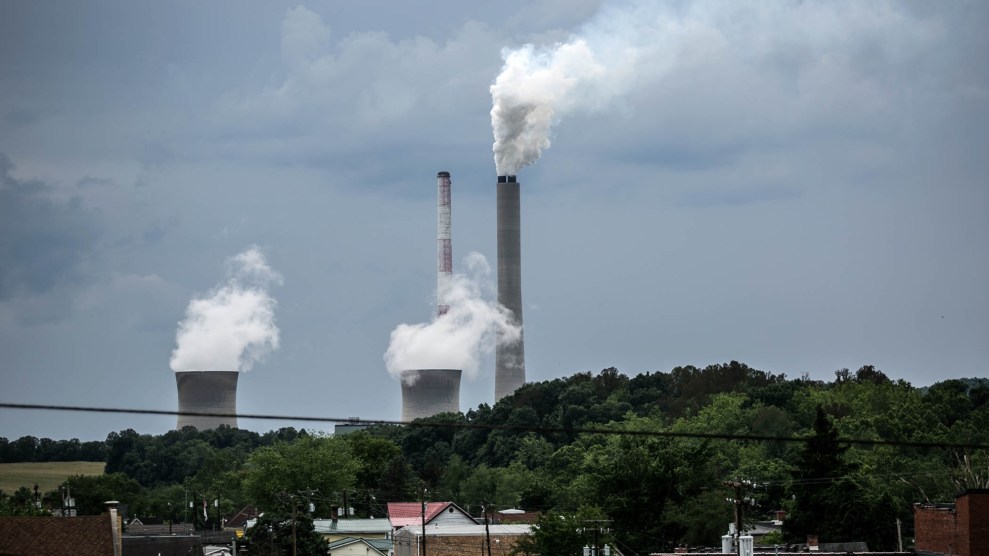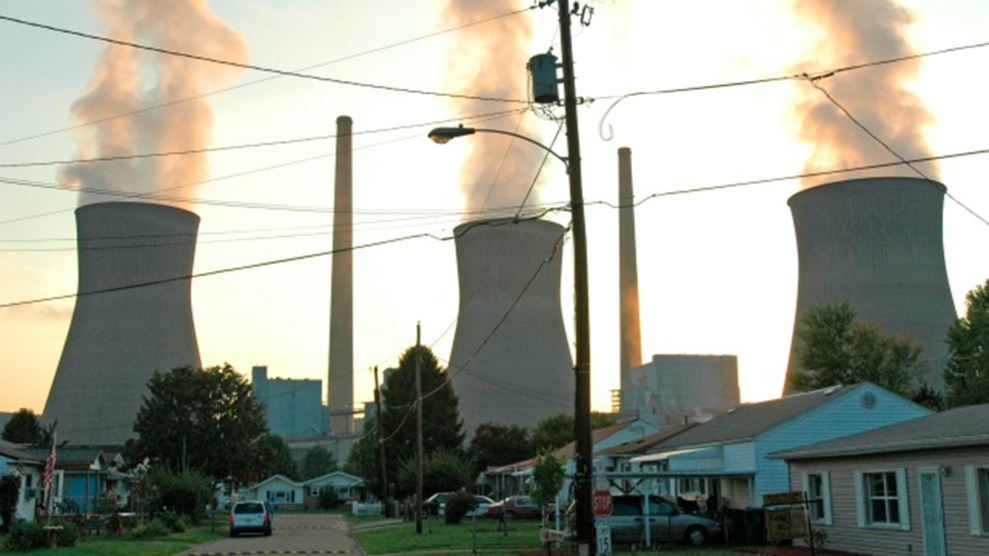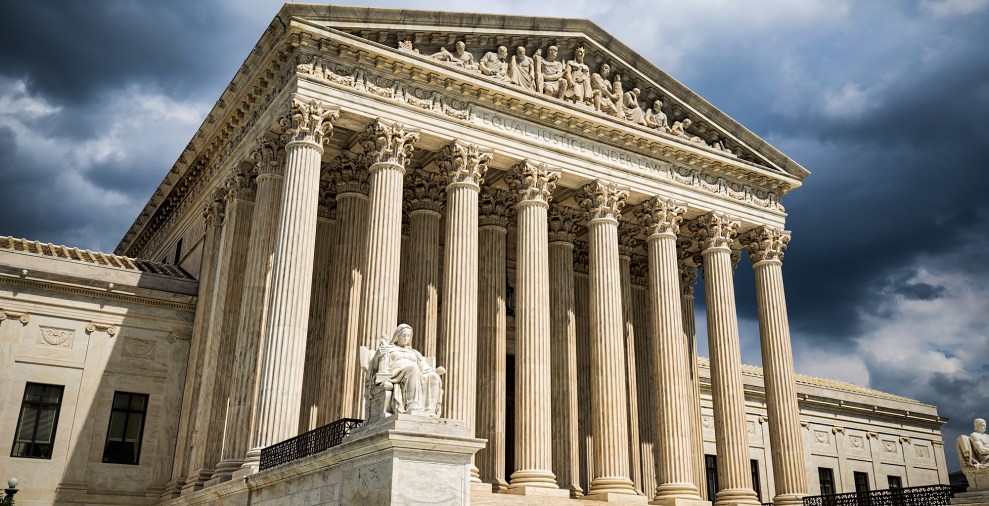
Allen Eyestone/The Palm Beach Post/Zuma
The Supreme Court on Thursday ruled to restrict the Environmental Protection Agency’s ability to regulate planet-warming emissions. The case, West Virginia v. EPA, considered whether the Clean Air Act gives the EPA the authority to broadly regulate power sector greenhouse gas emissions. In a 6-3 decision with the three liberal justices dissenting, the court ruled that the EPA does not have this power. Chief Justice John Roberts wrote the majority opinion.
Last October, the court agreed to hear the case from the petitioners, which included coal companies and coal-friendly states like West Virginia, with the EPA on the other side. Republican attorneys general argued that the EPA doesn’t have the authority to broadly regulate greenhouse gases coming from the power plant sector, and that the agency can regulate only at the level of an individual plant. They claimed that such authority can come only from Congress.
The case began making its way through the courts in 2015, when the Obama administration created the Clean Power Plan, which allowed the agency to set state by state goals for regulating power system emissions. Obama’s EPA argued that the Clean Air Act gave it the authority to regulate emissions of facilities like power plants that produced air pollution. But Republican state attorneys general and industry groups immediately sued, contending that the EPA couldn’t issue such expansive regulations and that the agency’s power ended “inside the fence line” at an individual facility. Before the case could be resolved, Trump took office, and the EPA abandoned the policy, replacing it with the Affordable Clean Energy rule—a weaker set of emissions guidelines that an appellate court in DC eventually struck down. When Biden took office, his EPA chose not to bring back the Clean Power Plan. As a result, there are currently no broad EPA rules limiting power plant emissions—a fact that led the Biden administration to argue that the case should be thrown out.
While potentially significant for climate change, the case had also been closely watched as one that could limit federal agencies’ power to issue broad regulations. The majority opinion invoked a controversial legal doctrine known as the “major questions doctrine,” which says agencies don’t necessarily have the authority to regulate on issues of “vast economic or political significance” unless Congress has authorized them to do so. “Under this body of law, known as the major questions doctrine, given both separation of powers principles and a practical understanding of legislative intent, the agency must point to ‘clear congressional authorization’ for the authority it claims,” Roberts wrote.
Justice Elena Kagan pushed back against this idea in the dissent. “The Court appoints itself—instead of Congress or the expert agency—the decision-maker on climate policy,” Kagan wrote. “I cannot think of many things more frightening.”
Update, June 30: This story has been updated to clarify the month when the Supreme Court agreed to hear the case.















